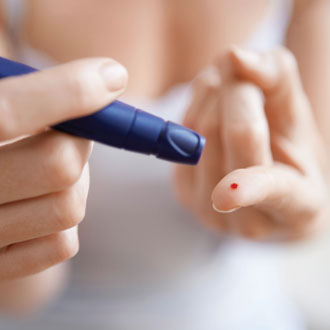NHS chief executive wants ‘one-stop’ GP practices to do ‘all of the -ologies’

Exclusive NHS chief executive Simon Stevens has told Pulse that he sees a future where GP practices do ‘all of the -ologies’ currently done in outpatient departments, including things like cardiology.
Mr Stevens’ comments are the first indication of the extent to which secondary care services may move into general practice, following health secretary Jeremy Hunt’s announcement last month that they will be going through ‘condition by condition’ to see which can be handled in general practice ‘one-stop shops’ rather than in hospital.
Speaking to Pulse after NHS England’s 2016 Annual General Meeting, Mr Stevens said that he envisaged ‘cardiology, diabetology, all of the –ologies’ falling under general practice management in future.
He added that he wants to end the current system where ‘patients are sent off with a referral and the next contact comes when the GP receives a letter from the consultant’s medical secretary weeks or months later’.
And though plans are at an early stage, an NHS England spokesperson told Pulse that they want to ‘expand dramatically’ on models tested in NHS England new care model ‘vanguard’ areas.
This included an an east London ‘virtual outpatients’ model which has sought to reduce renal referrals as consultants give GPs input as close to real-time as possible.
It also included the East Hampshire MCP vanguard’s pilot where consultant respiratory physicians attended asthma, COPD and breathlessness ‘carousel clinics’ across rural GP practices – with plans to roll out a similar model for diabetes building on work done in Portsmouth.
Clinical lead for the East Hampshire MCP Dr Kathryn Bannell told Pulse that, after nine months, ‘the reduction in emergency admissions for asthma and breathlessness clinics was 100%’ while for COPD ‘the reduction was 55%’.
As the scheme is now set to expand, the MCP is considering using GP hubs to house clinics and having consultant input delivered remotely rather than in person.
Dr Bannell said: ‘The hard data on outcomes from the pilot was absolutely unbelievable.’
An NHS England spokesperson said: ‘There are more opportunities to better integrate consultant outpatient services and the support offered by GPs, particularly for patients with long-term medical conditions such as diabetes, rheumatology and heart problems.
‘This is now happening in places such as Tower Hamlets, Portsmouth and Northumbria, and we now want to expand this dramatically.’
GPC deputy chair Dr Richard Vautrey said: ‘Practices would welcome developing stronger links with their local specialist colleagues and sharing management in a way that reduced the need for patients to attend hospital.
‘But we need to ensure this is done in a way that doesn’t just shift more unfunded work on to the already over-burdened shoulders of GPs.’
The move to GP ‘one-stop’ shops
Speaking at the Best Practice Conference last month, health secretary Jeremy Hunt said that under his ‘GP one-stop programme’, the NHS will be going through ‘condition by condition’ to see which can be handled in general practice rather than secondary care going forward.
He said that he thought patients would prefer if their problems were ‘sorted out inside general practice’ and that’s why they would look at ‘what barriers we can remove centrally to allow more of this work to happen in general practice’.
He admitted that this meant asking GPs to ‘do more work’ but said that they would be ‘paid for doing that’ and argued that it would also ‘make life more rewarding for doctors’.









